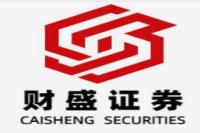智能化赋能,新能源车市场加速腾飞:小米汽车领跑智驾新时代
元描述: 新能源汽车市场持续火爆,小米汽车领跑智能化赛道,技术创新和用户体验升级推动行业发展。
引言:
智能化功能的 rapid evolution, "trade-in" discounts, and new sales records from major automakers... The first half of 2024 witnessed a stellar performance in the new energy vehicle (NEV) market, one of the "new three major items" of foreign trade. This burgeoning sector is not only seeing the flourishing of diverse technological approaches but also witnessing a surge in deliveries from new entrants like Xiaomi, BYD, and NIO, with the NEV retail penetration rate reaching a remarkable 49%.
新能源汽车市场:强劲增长势头
The China Association of Automobile Manufacturers (CAAM) data reveals that in the first half of 2024, China's automotive production and sales reached 13.891 million and 14.047 million units, respectively, representing year-on-year increases of 4.9% and 6.1%. In June alone, China's NEV production and sales hit 1.003 million and 1.049 million units, respectively, marking year-on-year surges of 28.1% and 30.1%, with a market share of 41.1%. By the end of June, cumulative production and sales of domestically produced NEVs exceeded 30 million units.
小米汽车:智能化领跑,智驾体验升级
NEV manufacturers are not only experiencing sales growth but also investing heavily in technological innovation and industry ecosystem development, taking a leading position in the intelligent driving sector. Among them, Xiaomi's entry into the automotive market with its "people's car" model, the SU7, has become a highlight in the NEV industry during the first half of the year. Lei Jun, founder and chairman of Xiaomi Group, recently shared the development strategy of Xiaomi's car business in his annual speech.
"The trend of intelligent electric vehicles is unstoppable, and the automotive industry is merging with the consumer electronics industry," said Lei Jun. Indeed, the NEV market has shifted from volume growth to a race for intelligent and autonomous driving technology. The Xiaomi SU7, officially launched in the first half of the year, boasts a "embodied intelligence engine" and an AI large model, enabling features such as adaptive zoom BEV, road large model, super-resolution occupancy network, real-time environmental modeling, behavior prediction model, interactive game theory model, and spatiotemporal joint decision-making, optimizing the intelligent driving experience.
智能化生产:赋能高效交付
The intelligent driving experience stems from the intelligent production of NEVs. Many NEV manufacturers leverage their full-stack AI self-research and vertical integration advantages to drive the integration and innovation of advanced intelligent technologies with traditional manufacturing. In areas like stamping, die casting, body joining and assembly, painting, battery, and final assembly, automation is utilized to achieve high-quality delivery.
Take Xiaomi's car factory as an example. Its intelligent production boasts over 700 robots on the assembly line, achieving 100% automation of key processes. Specifically, Xiaomi's full-chain independently designed large die-casting equipment cluster system simplifies the process, completing the rear floor of the Xiaomi SU7 in just 120 seconds with a single die-casting operation. The efficient intelligent production enables the factory to produce approximately 40 Xiaomi SU7s per hour, with a new car rolling off the assembly line every 76 seconds.
行业展望:技术创新和用户体验至关重要
Zhang Xiang, a researcher at the Automotive Industry Innovation Research Center of North China University of Technology, believes that NEV production and sales have continued to grow steadily this year, with market share steadily increasing. This is primarily attributed to the dual drivers of technological innovation and user demand. Automakers need to continuously increase investment in technology research and development to enhance the intelligence and connectivity of their products. Simultaneously, they need to deeply understand user needs and provide more personalized and convenient travel solutions.
Industry insiders believe that automakers have made rapid progress in technological innovation in the first half of the year, with a significant shortening of the new product launch cycle. In the face of intense market competition, NEV manufacturers need to continuously adjust their business structures and swiftly find breakthroughs in technology research and development, as well as marketing systems, to adapt to new market changes and accelerate the integration of more NEVs into public life.
关键词:新能源汽车,智能驾驶,小米汽车,智驾体验,智能化生产
新能源汽车智能化:未来趋势与挑战
H2: 智能驾驶:引领未来出行新体验
智能驾驶技术是新能源汽车的核心竞争力之一,也是未来出行方式的重要发展方向。 目前,智能驾驶技术正处于高速发展阶段,从辅助驾驶到自动驾驶,不断突破着技术边界。
智能辅助驾驶:
- 自适应巡航控制 (ACC): 自动调节车速,保持与前车安全距离。
- 车道保持辅助 (LKA): 帮助车辆保持在车道内,防止偏离。
- 自动紧急制动 (AEB): 在紧急情况下自动刹车,防止碰撞。
- 盲点监测 (BSD): 提醒驾驶员车侧盲区有车辆。
- 倒车影像 (RVC): 提供车尾视野,方便倒车。
自动驾驶:
- L2级自动驾驶: 提供部分自动驾驶功能,例如自动变道、自动泊车。
- L3级自动驾驶: 车辆可在特定场景下实现自动驾驶,但驾驶员需要随时接管。
- L4级自动驾驶: 车辆能够在大多数道路环境下实现自动驾驶,无需驾驶员干预。
- L5级自动驾驶: 车辆能够在所有道路环境下实现完全自动驾驶,无需驾驶员干预。
小米汽车:智能驾驶的先锋
小米汽车以其领先的智能驾驶技术,在行业中脱颖而出。 小米SU7搭载了先进的AI大模型,拥有以下智能驾驶功能:
- 自适应变焦BEV: 提供更宽广的视野,提升识别范围。
- 道路大模型: 理解道路环境,预测道路状况。
- 超分辨率占用网络: 精准识别周围物体,提升安全性能。
- 实时环境建模: 构建实时环境模型,为智能驾驶决策提供支持。
- 行为预测模型: 预测周围车辆和行人的行为,提前做出反应。
- 交互博弈模型: 模拟驾驶场景,制定最佳驾驶策略。
- 时空联合决策: 综合考虑空间和时间因素,做出精准的驾驶决策。
H2: 智能化生产:推动新能源汽车产业升级
智能化生产是提升新能源汽车制造效率、降低成本、提高产品质量的关键。 得益于人工智能、大数据、云计算等技术的应用,智能化生产线能够实现:
- 自动化生产: 机器人、自动化设备代替人工操作,提高生产效率。
- 数字化管理: 数据采集和分析,实时监控生产过程,优化生产流程。
- 柔性生产: 根据市场需求调整生产计划,快速响应市场变化。
- 精益生产: 减少浪费,提高资源利用率,降低生产成本。
小米汽车工厂:智能化生产的典范
小米汽车工厂是智能化生产的典范,拥有超过700个机器人流水线作业,实现关键工艺的100%自动化。 其全链路自主设计的大压铸设备集群系统,大幅提升生产效率,每小时可生产约40辆小米SU7。
H2: 新能源汽车市场:挑战与机遇并存
新能源汽车市场正在快速发展,但同时也面临着一些挑战:
- 电池技术: 电池续航里程、充电时间、安全性等方面都需要进一步提升。
- 基础设施: 充电桩数量不足,充电网络还不够完善。
- 政策支持: 需要政府持续支持,营造良好的发展环境。
- 竞争激烈: 市场竞争日益激烈,需要不断提升产品竞争力。
未来展望:
未来,新能源汽车市场将继续保持高速增长,智能化将成为行业发展的主流趋势。 车企需要不断提升技术创新能力,打造更加智能、安全、便捷的出行体验,满足用户不断增长的需求。
常见问题解答 (FAQ):
Q: 新能源汽车的优势是什么?
A: 新能源汽车具有以下优势:
- 环保: 零排放,减少污染。
- 节能: 油耗更低,节省能源。
- 性能: 加速性能更强,驾驶体验更佳。
- 智能化: 搭载智能驾驶技术,提升驾驶安全性和舒适性。
Q: 小米汽车的竞争优势是什么?
A: 小米汽车拥有以下竞争优势:
- 智能化: 搭载领先的智能驾驶技术,提供卓越的智驾体验。
- 性价比: 以 "人民汽车" 的定位,提供具有竞争力的价格。
- 生态优势: 整合小米生态系统,提供丰富的智能服务。
Q: 智能驾驶技术的未来发展趋势是什么?
A: 智能驾驶技术未来将朝着以下方向发展:
- 更高级别的自动驾驶: 逐步实现更高级别的自动驾驶,最终实现无人驾驶。
- 更强大的计算能力: 采用更高性能的芯片,提升数据处理能力。
- 更完善的感知系统: 使用更先进的传感器,提高对环境的感知能力。
- 更安全的驾驶系统: 加强安全性测试,确保驾驶安全。
Q: 如何选择适合自己的新能源汽车?
A: 选择新能源汽车需要考虑以下因素:
- 预算: 确定购车预算。
- 续航里程: 根据日常出行需求选择合适的续航里程。
- 充电设施: 了解当地充电设施情况。
- 智能功能: 选择符合自己需求的智能功能。
结论:
新能源汽车市场正在蓬勃发展,智能化成为行业发展的主流趋势。 小米汽车凭借其领先的智能驾驶技术和高效的智能化生产,在行业中脱颖而出,成为智能驾驶的领跑者。 未来,随着技术的不断进步,新能源汽车将为用户带来更加智能、安全、便捷的出行体验,引领未来出行新时代。



